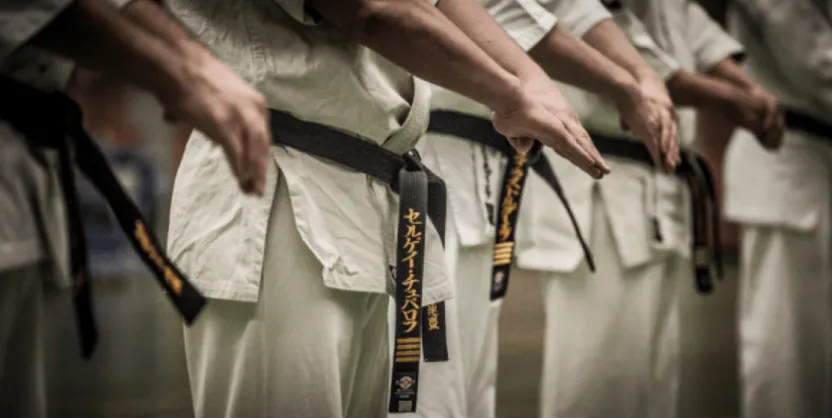The relationship between martial arts and autism has been getting a lot of attention in the past decade. With a constant search for effective therapies and activities for autistic children, the martial arts have begun to establish themselves as a positive aid in the lives of autistic kids. Many studies have shown what we, as martial artists, have known for a while. A 2010 study by the University of Wisconsin found that martial arts and autism go well together; autistic children were a lot more social with their peers, their physical coordination improved, as did their self-esteem.
Here are a number of ways that martial arts and autism can have a positive relationship for children and their families.
Social
Martial arts classes require quite a bit of social interaction. There is interaction between the teacher and student, as well as plenty of interaction with other classmates. Many drills and activities require a partner and/or cooperation with many other students. This helps in nurturing a comfort level for autistic kids, as they become more familiar with their surroundings and others in your martial arts school.
With a constant pursuit in martial arts, self-esteem tends to be boosted as proficiency increases. Allowing the student to become more sure of themself through practice is an important part of a healthy lifestyle and socialization for kids. This combined with their consistent social interactions can help children come out of their shell, becoming more social.
Physical
The autism spectrum contains a lot of repetitive behaviors, as does martial arts. Many martial art forms or techniques must be performed many, many times, in order to achieve fluency and mastery. Stereotypy is the measure of how frequently someone in the autism spectrum exhibits repetitive motions, which can be a detriment to them. A study by the University of Isfahan showed that students who learned karate kata, or patterns, which requires a large amount of repetition, exhibit a large and significant reduction in stereotypy after one month of training. With lifelong learning, martial arts and autism create a lasting symbiotic relationship that greatly benefits students.
Motor skills are another faculty the autism spectrum can have difficulty with. Motor planning can be a difficulty for many but learning the necessary body positions and techniques in martial arts can yield huge improvements. Martial arts classes have an external cue (instruction or a reaction to an attack or defense), in which a reaction undergoes internal coordination and motor planning. This helps develop the brain areas that are used for motor skills.
Mental
Confidence and self-esteem are incredibly important for everyone and this includes the autism spectrum. In multiple University of Michigan studies of wellbeing in America, it was found that satisfaction with self was the best predictor of general life satisfaction, rather than satisfaction with family life, friendships, or income.
Increasing awareness with pamphlets or a simple page on your webpage is a great idea to attract children – predominantly parents looking for programs that might benefit their child –
in the autism spectrum. They deserve the benefits that come with martial arts, and some states’ insurance companies even cover martial arts as part of their therapy. If you do attract children in the autism spectrum, ensure you train and educate all of your instructors on autism and the dos and don’ts of how martial arts and autism function together.
Source: Championsway

